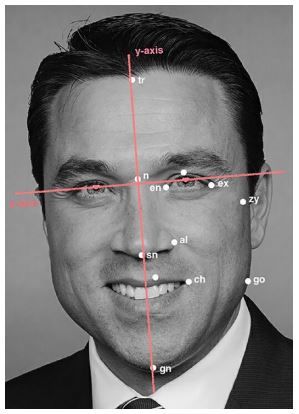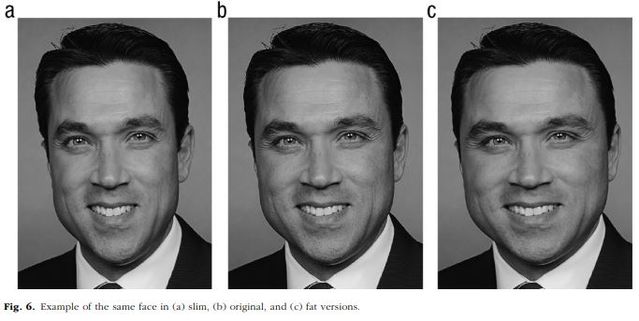Mating
We Can Read Books by Their Covers: Corrupt Politicians
New research shows the faces of corrupt politicians may betray them.
Posted December 2, 2018
We give a lot of power and, therefore, prestige to our elected officials. Among other things, they decide how much money to take out of our paychecks, what we can be thrown in jail for, and even when we may be asked to make the ultimate sacrifice for our country. Minimally, in exchange for this power, we expect them to act in our best interest. You know, with great power comes great responsibility (thanks Voltaire, or is it Spider-Man?).
We humans extensively engage in social exchange, because social exchange is a key factor in our survival. Grow your own food? Build your own house? On average we have more nutritious food and safer houses because we engage others who have the knowledge to do those things for us. In exchange, we are expected to pay for those services. If reneging on such arrangements is widespread, then we’ll be less willing to make exchanges and have, for example, less nutritious food and less safe houses.
Built-in Cheater Detection
So evolutionary psychologists argue that we humans have developed a cheater-detection module in our minds. This evolved to help us avoid social exchanges with people who will not live up to their end of the bargain. There’s a great deal of evidence that we’re pretty good at detecting cheaters.
Children as young as four years old demonstrate the ability to identify those who don’t play by the rules. Neuroimaging studies show that our brains produce different patterns when processing cheating on social exchanges versus other social situations. And, indeed, there are studies showing we have the ability to recognize the faces of cheaters.
We Can Read Books by Their Covers
In a recent article published in Psychological Science, a team of researchers at Caltech showed that people can detect corrupt politicians. Chujun Lin, Ralph Adolphs, and Michael Alvarez used lists of federal, state and local, and California enforcement actions to identify politicians legally convicted of corruption. They defined corruption in a number of general ways including bribery, money laundering, embezzlement, mail/wire/tax fraud, conflict of interest, misusing funds/office, and falsifying records and more politically specific ways like accepting illegal contributions/gifts, improperly using campaign funds, and improper campaign finance statements.
In four rigorously designed studies (kudos to them for using the Open Science Framework, which is designed to improve the quality of research, especially reproducibility), they showed that politicians who had been convicted of corruption tend to be perceived as more corruptible, dishonest, selfish, and aggressive and less trustworthy and generous than “clean” politicians with no convictions for corruption.
Yes, people can—to a certain extent—read corruption in politicians.
What Are They Reading?
In their final study, the researchers showed that politicians who had been convicted of corruption were judged more negatively than those with clean records, and that having a wider face (as measured by width-to-height ratio and face width/lower-face height) partially accounted for the judgments.

They confirmed that research subjects used these characteristics as a cue by showing that faces of politicians that were manipulated to look “fat” (7% wider than normal) were more likely to be perceived as corrupt than faces of politicians that were manipulated to look “slim” (7% narrower than normal).

Faces Have Real-World Consequences
Faces convey a lot of information, so it’s not surprising that they affect important social outcomes like dating/mating, earnings, and the selection of leaders. But what’s the connection between faces and political corruption?
Lin and her colleagues offer three. First, corruptible looking politicians may appear easier to corrupt and, therefore, attract people who want to engage in corruption. Second, assessments of guilt and levies of punishment are influenced by defendants’ facial appearance, so corruptible looking politicians may be more likely to be accused, prosecuted, and convicted. Finally, faces may convey personality or other information that is somewhat accurate in regard to corruptibility/criminality. In the end, despite their findings regarding facial structure, they suggest that the best explanations for the connection between faces and political corruption may be their first two explanations.
Ideal Citizens
We want to think that citizens make their political decisions based on full information about the policies that politicians offer to them. And we’re critical of those who let shortcuts such as looks affect their decisions. Maybe we shouldn’t be so fast to criticize what other people are reading.
References
Lin, C., Adolphs, R., & Alvarez, R. M. (2018). Inferring whether officials are corruptible from looking at their faces. Psychological Science, https://doi.org/10.1177/0956797618788882.




